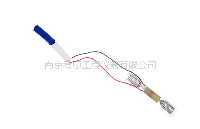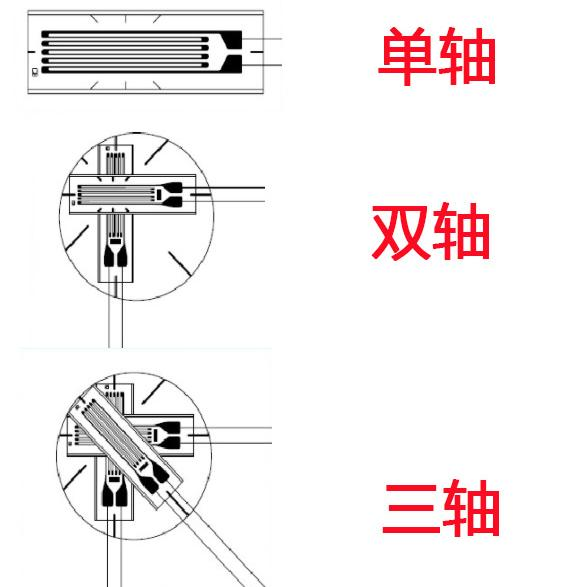商业往事
每月分享几则有趣的商业小故事(中英双语),邀请大家和我们一起透过历史故事,看存储商业。

学习临机应变
本文总计1044字
预计阅读5分钟
(英文文章在中文文章之后)
能够临机应变是我们在工作中都需要使用的重要能力,因为无论我们对日常工作多么熟悉,我们都永远不知道什么时候会发生意外情况。
菲尔·贝曼是英国皇家空军的战斗飞行员。他的飞行纪录中有超过4,500小时的飞行时间。他几乎经历了所有战斗飞行员该经历的一切。他不仅自己执行了无数次任务,而且还训练了其他飞行员。红箭队(英国皇家空军特技飞行队)的许多飞行员都是他以前的学生。
战斗飞行需要面对许多极端的需求。除了来自敌方导弹的外部威胁和恶劣天气带来的风险外,还有诸如高重力带来的生理挑战。菲尔解释说:「战斗飞行是一场国际象棋的盛大游戏,有很多很多变量。如果有什么事情要出错 -你的飞机,你的身体,或者你的团队 - 你必须决定把那只试图爬上你的船,大鳄鱼(意外)并首先处理它。
但为了做到这一点,你需要保持你的智慧,这样你才可以在正确的时间对正确的事情做出反应。换句话说,你需要能够快速而恰当的作出临机应变。
但是,你不能太冲动,因为如果你采取错误的行动,这可能会使事情变得更糟。贝曼对他教的飞行员有一句口头禅:「当事情出错时,把你的手放在屁股下,数到十。很少东西不能在这么短时间内等待。过早冲动行事,采取你没有想到的行动路线,会有很大的危险。
为什么坐在你的手上很重要?答案是,我们需要时间来确认我们周围的各种信号,这些信号会告诉我们问题的本质,以便知道你该如何做出适当的反应。这样的反应可能涉及临机应变,因为情况并不正常。当你处理紧急情况时,或者当你感到疲倦或压力很大时,你的注意力往往会缩小到一个点。我们称之为具有隧道视野。虽然聚焦通常很好,但聚焦太窄会导致你错过其他重要信号。因此,你需要确定你面临的最紧迫的问题或鳄鱼,用贝曼的话说。
然后,一旦你确定了那只鳄鱼,你就可以立即采取适当行动。例如,如果一只鳄鱼爬上了你的船,你可以击中鳄鱼的鼻子,或者你可以把它从你的船上踢下来,想办法达到更安全的水域。或者你可能会把汽油扔进它的眼睛里。关键是这是一个紧急情况,你可能需要及时确定一个临时解决方案,直到你能想出一个更永久的解决方案。
我们如何在工作中学会临机应变?最好的方法之一是,观察我们的主管如何处理具有挑战性的情况。每个资深工作人员在应对挑战时都有自己的个人风格,他们可以教给资浅工作人员。问问你的资深主管;你的工作中可能发生什么意想不到的情况,以及他或她将如何处理这些意外情况。然后尝试将这些建议付诸实践。但不见得一定要完全尊重你的主管,不要害怕用自己的想法和解决方案,在你对眼前的情况有了很好的观察之后,你就采取行动。
Learn to Improvise
Being able to improvise is an important ability that we all need to use in our work because, no matter how familiar we are with our routine jobs, we never know when an unexpected situation will happen.
Phil Bayman is a RAF combat pilot. He has over 4,500 flying hours in his logbook. He has seen pretty much everything that combat pilots experience. Not only has he flown countless missions himself but he also trains other pilots. Many of the pilots of the Red Arrows (a RAF aerobatic team) are his former students.
Combat flying requires facing many extraordinary demands. In addition to external threats from enemy missiles and the risks from bad weather, there are physiological challenges such as those imposed by high G-forces. Phil explained: “Combat flying is a big game of chess and there are many, many variables. If something starts to go wrong—with your plane, your body, or your team—you have to decide which is the big crocodile trying to clamber into your boat and deal with that first.”
But in order to do that, you need to keep your wits about you, such that you respond to the right thing at the right time. In other words, you need to be able to improvise quickly and appropriately.
However, you don’t want to act too quickly because that can make things worse if you take the wrong action. Bayman has a mantra for the pilots he teaches: “When things go wrong—sit on your hands and count to ten. There's very little that can’t wait for a short time. There are big dangers in acting too soon, in committing yourself to a line of action you haven’t thought through.”
Why is sitting on your hands important? The answer is that we need time to look for the signals around us that tell us the nature of the problem in order to know how to respond appropriately. And such a response will likely involve improvising because the situation is not normal. When you are dealing with an emergency, or when you are tired or stressed out, your attention tends to narrow to a single point. We call that having tunnel vision. And while it’s often good to focus, focusing too narrowly can cause you to miss important signals. So you need to determine the most urgent problem or crocodile—to use Bayman’s words—that you face.
Then, once you have identified that crocodile, you can take appropriate and immediate action. For example, if a crocodile had climbed onto your boat, you could strike the crocodile on the snout, or you could kick it off of your boat and try to get to safer waters. Or you might throw gasoline in its eyes. The point is it’s an emergency situation and you likely will need to improvise a temporary solution until you can come up with a more permanent solution.
How do we learn to improvise in our work? One of the best ways is by watching how our supervisors deal with challenging situations. Each senior staff member has their own personal style in dealing with challenges that they can teach to junior staff members. Ask your senior supervisor what unexpected situations could happen in your job, and how he or she would go about handling such unexpected situations. Then try to put such advice into practice. But don’t be afraid to improvise using your own ideas and intuition, but only after you have made good observations of the situation at hand.
原文标题:商业往事丨第82话:学习临机应变
文章出处:【微信公众号:江波龙电子】欢迎添加关注!文章转载请注明出处。
-
江波龙
+关注
关注
4文章
311浏览量
28080
原文标题:商业往事丨第82话:学习临机应变
文章出处:【微信号:江波龙电子,微信公众号:江波龙电子】欢迎添加关注!文章转载请注明出处。
发布评论请先 登录
振弦式应变计:从应变测量到应力分析的原理与应用

振弦式应变计如何将应变转化为应力?工作原理解析

振弦式应变计的功能与应用:它能测读什么

PCBA应力测试方法原理和应变片怎么粘贴

电阻应变片的多样选择与应用
多向应变计组是如何工作的,较单向应变计有何优势

振弦式表面应变计与点焊型应变计如何选择?

电阻应变传感器的原理与应用

AI商业应用平台的特点
应变计的测量范围和精度是如何界定?

【峟思】应变单位 με 是如何换算成应力的

应变是反映构件什么的?应变计起到什么作用?






 商业往事丨第82话:学习临机应变
商业往事丨第82话:学习临机应变














评论